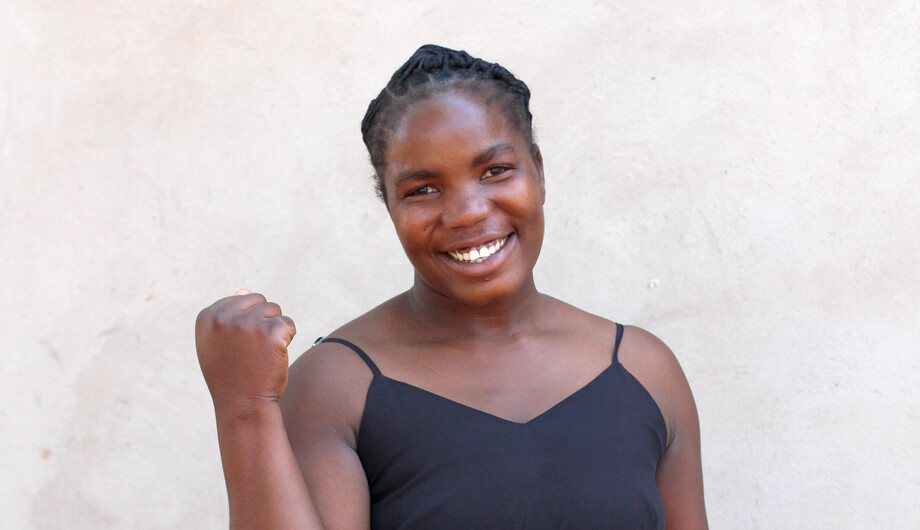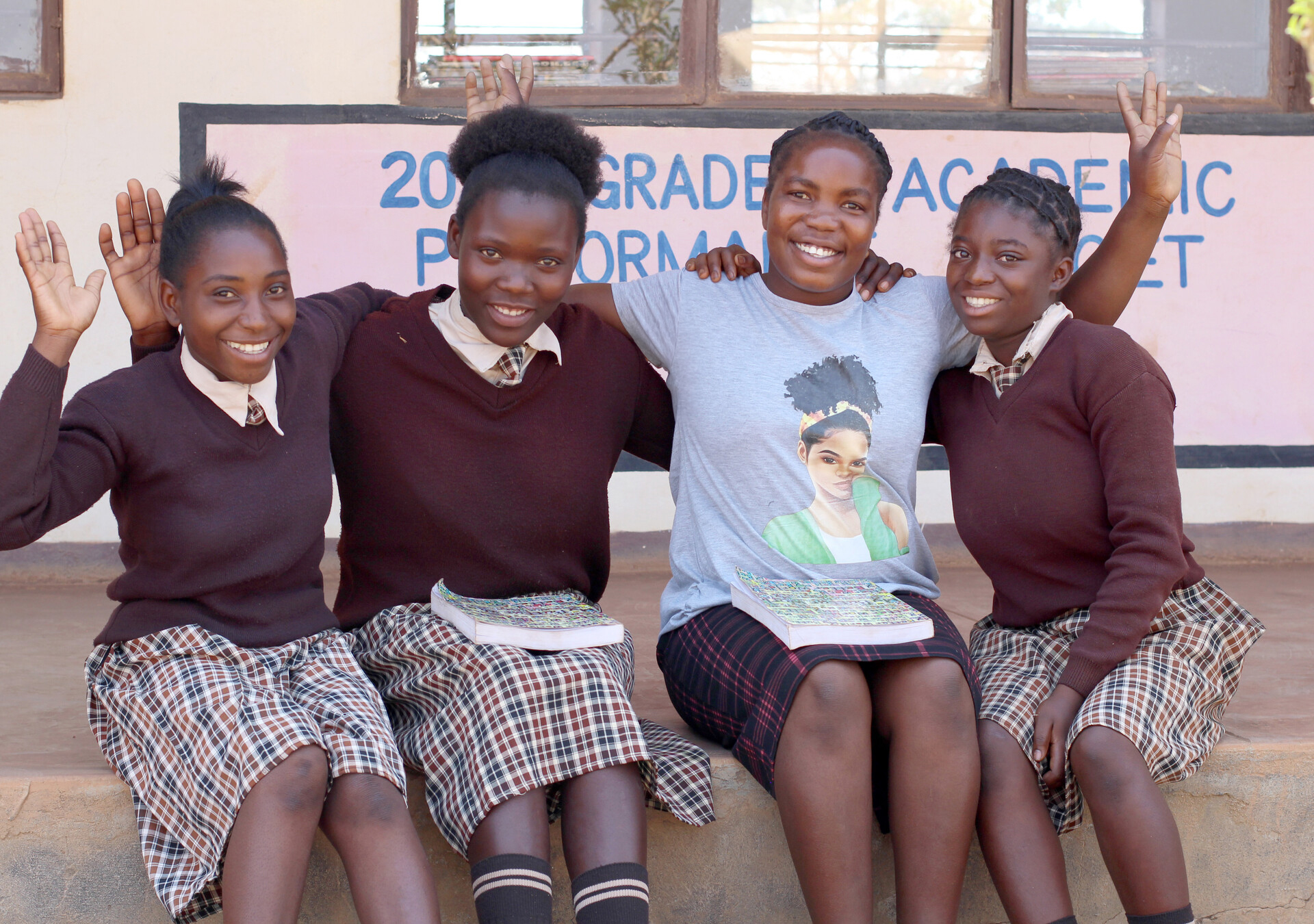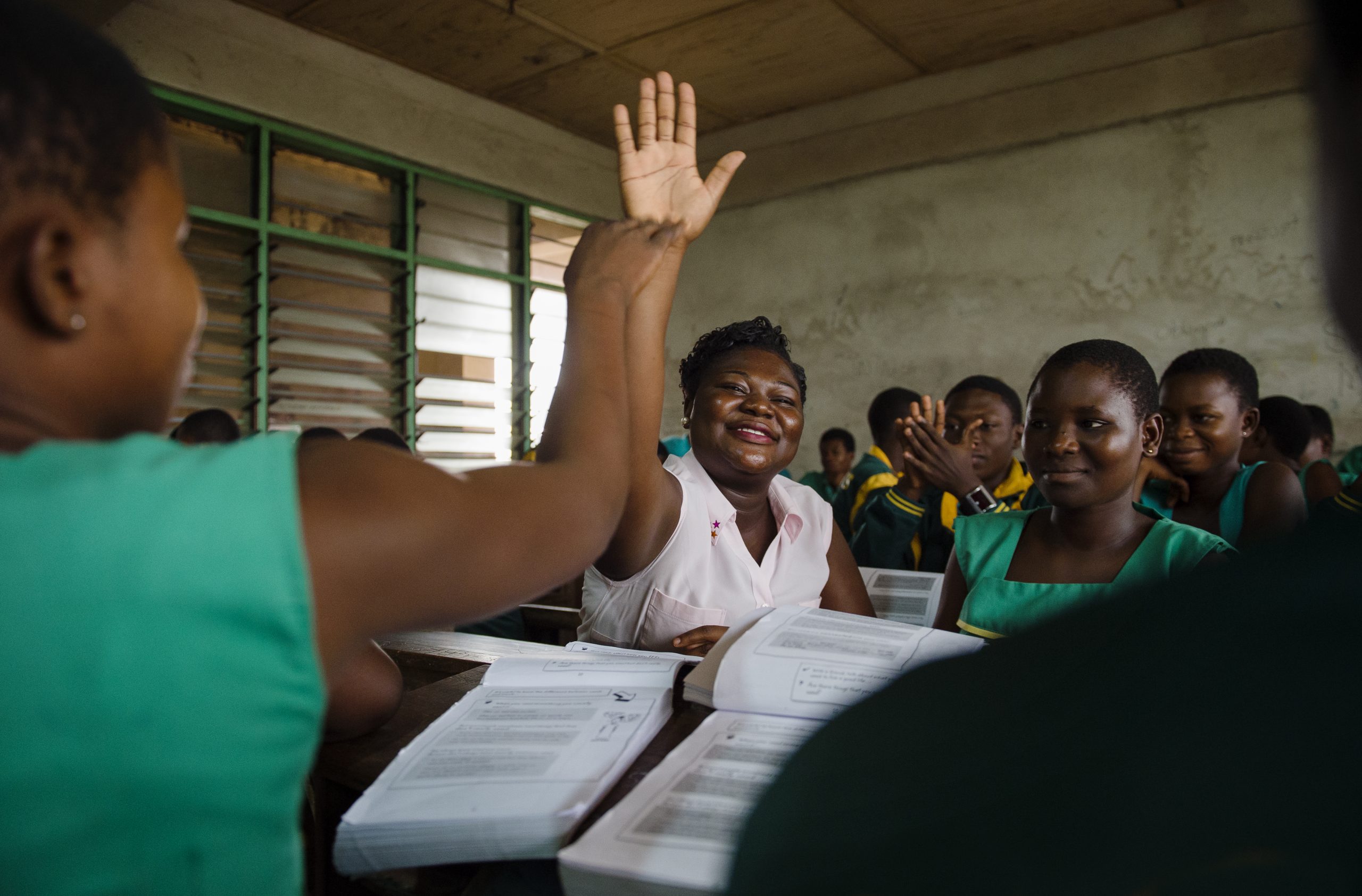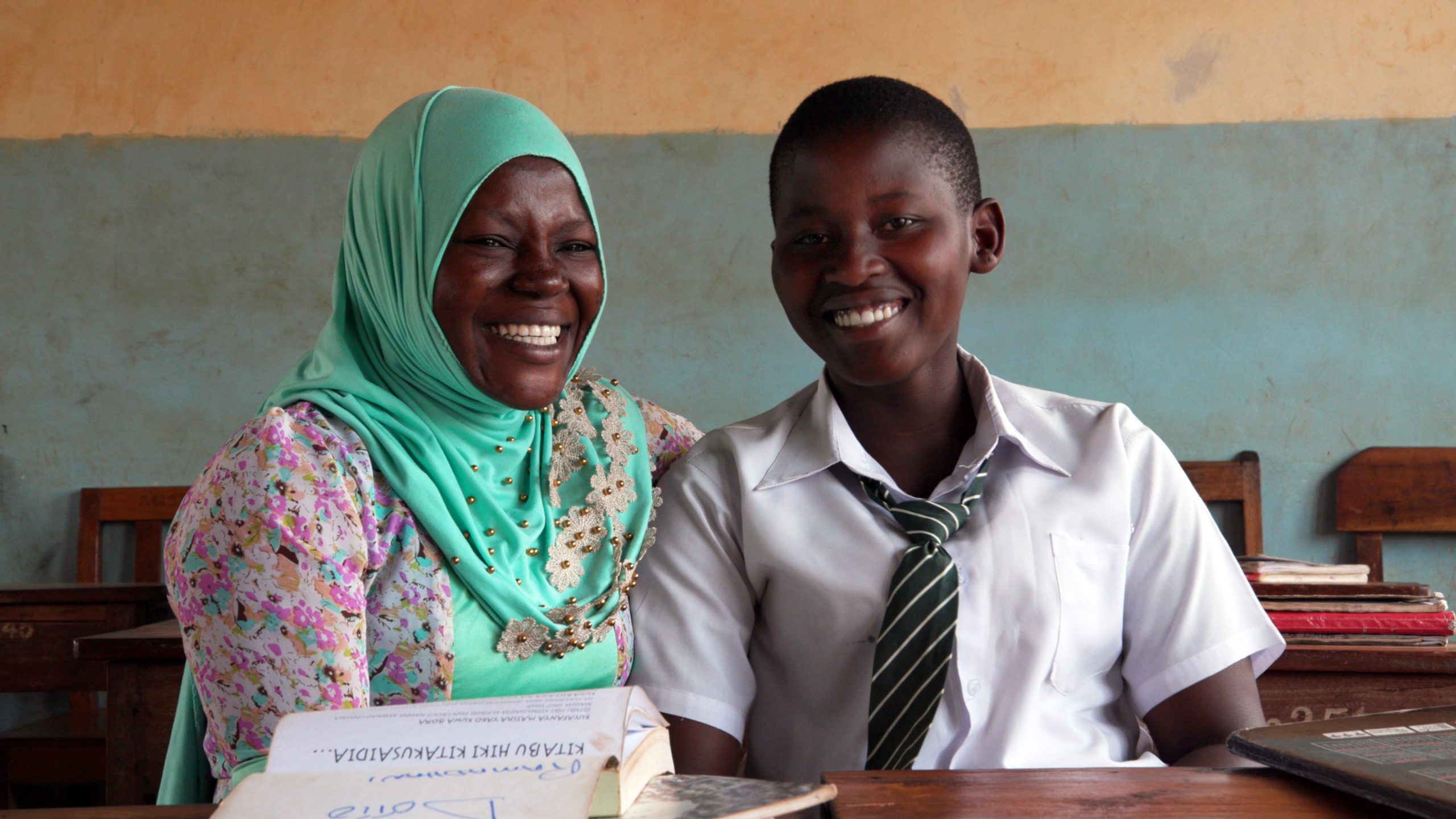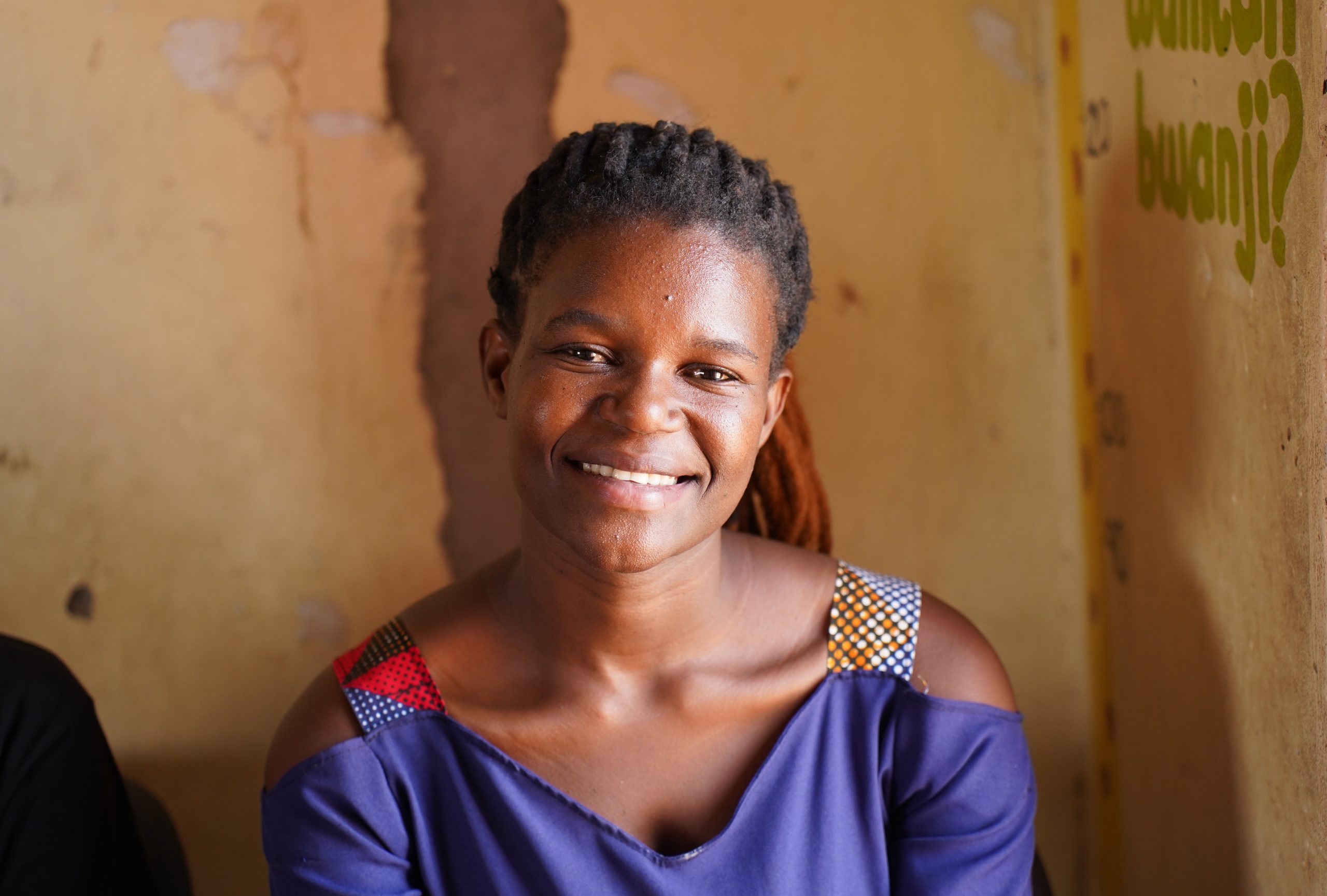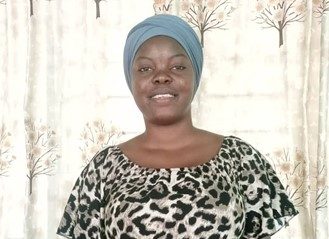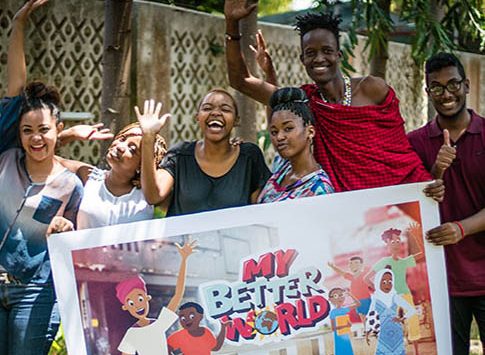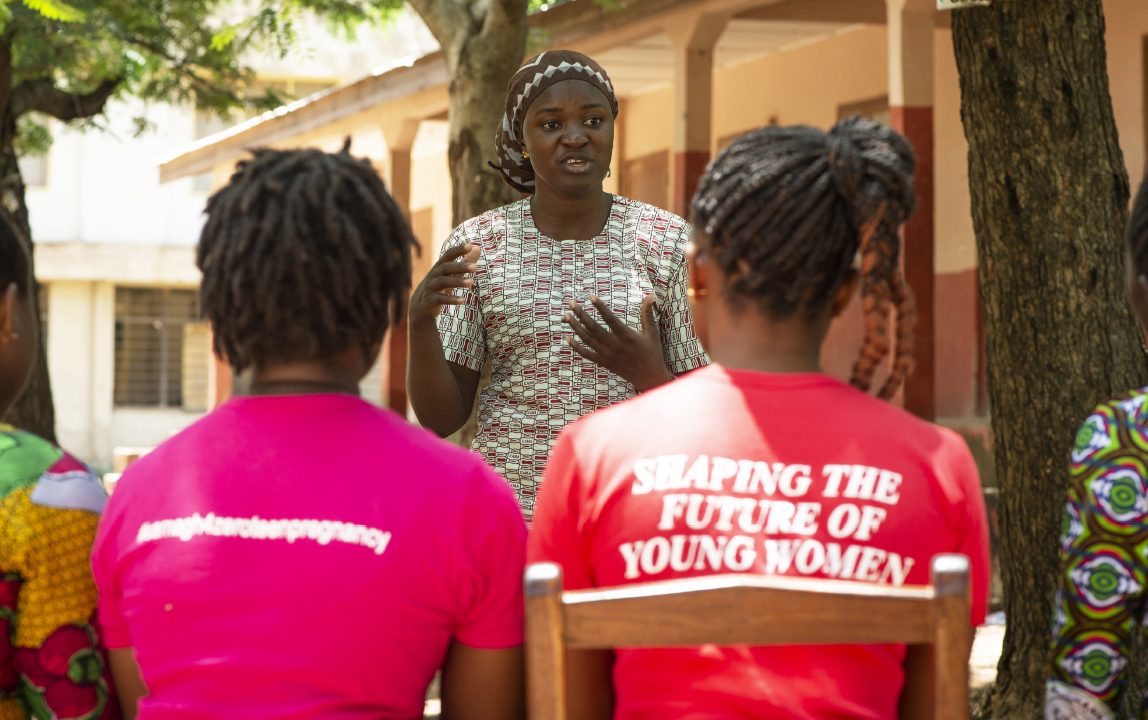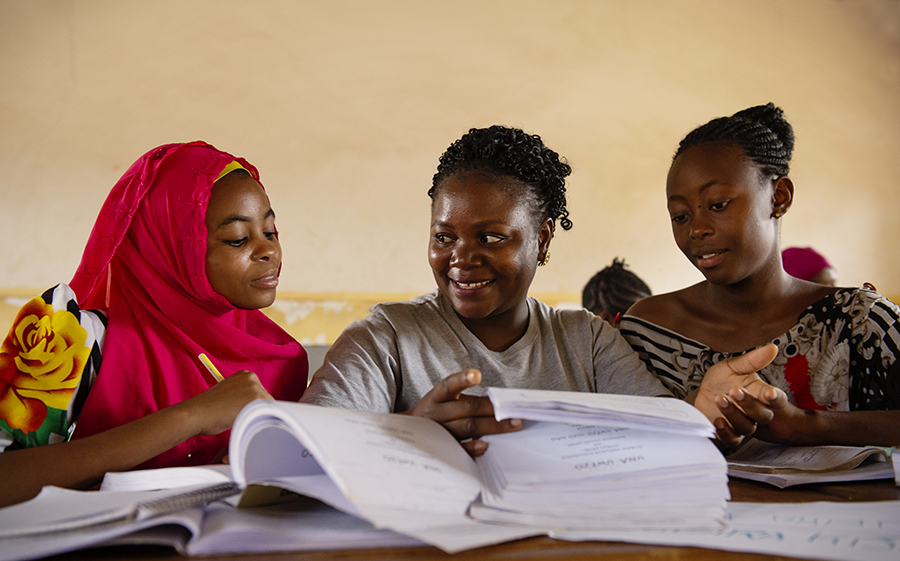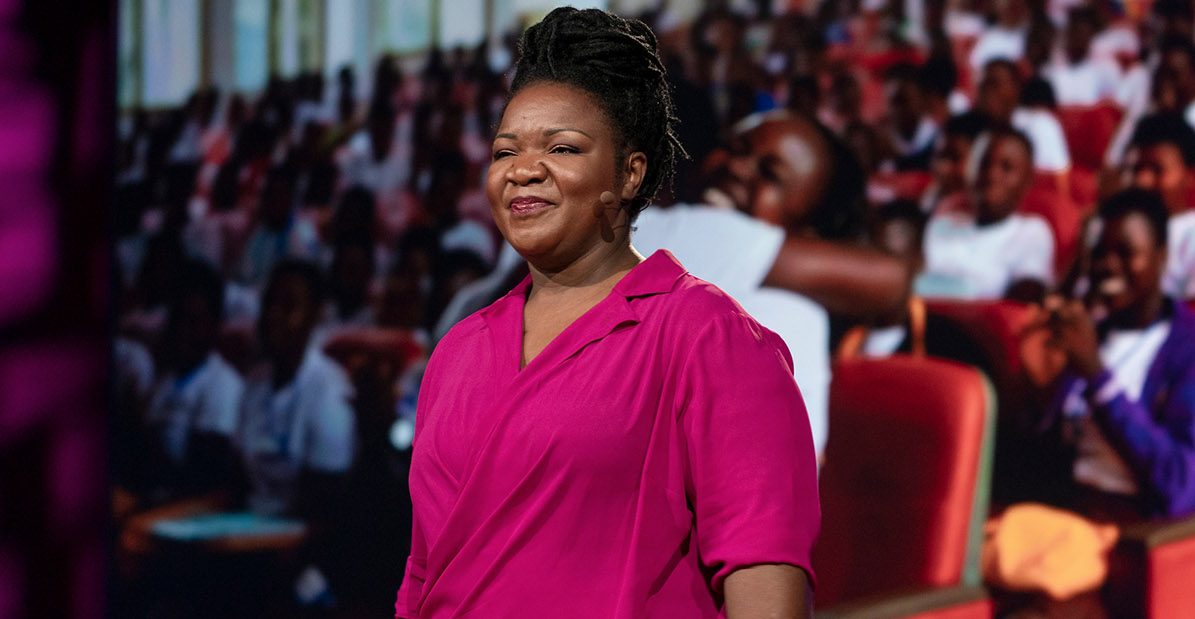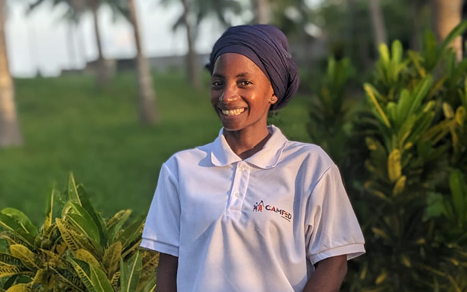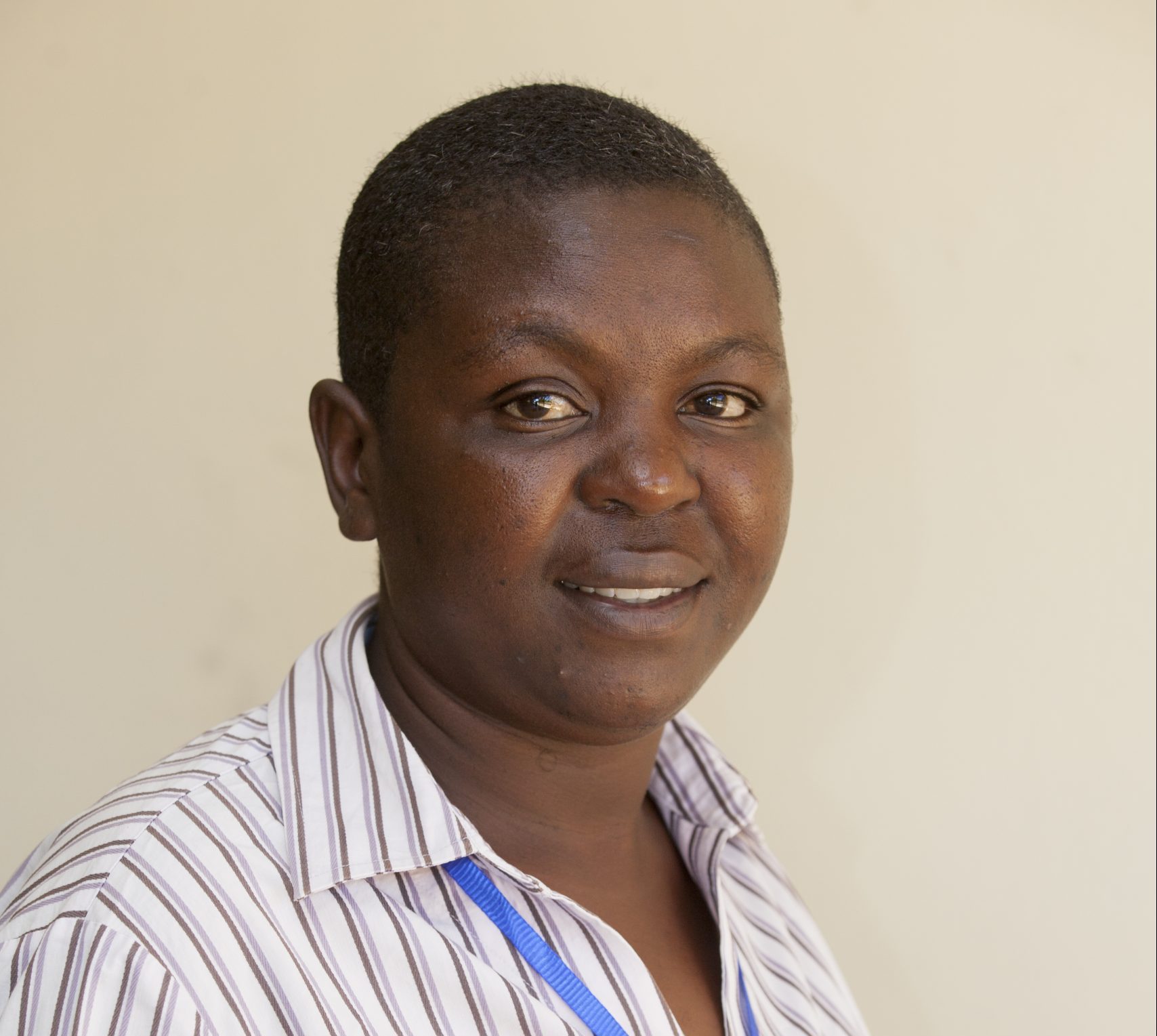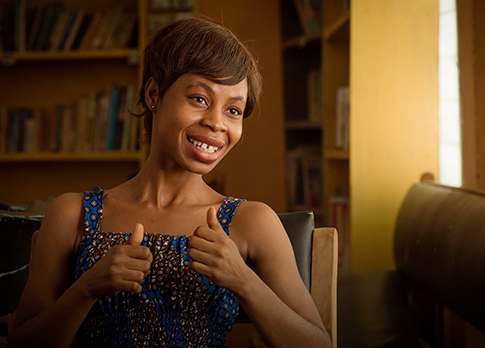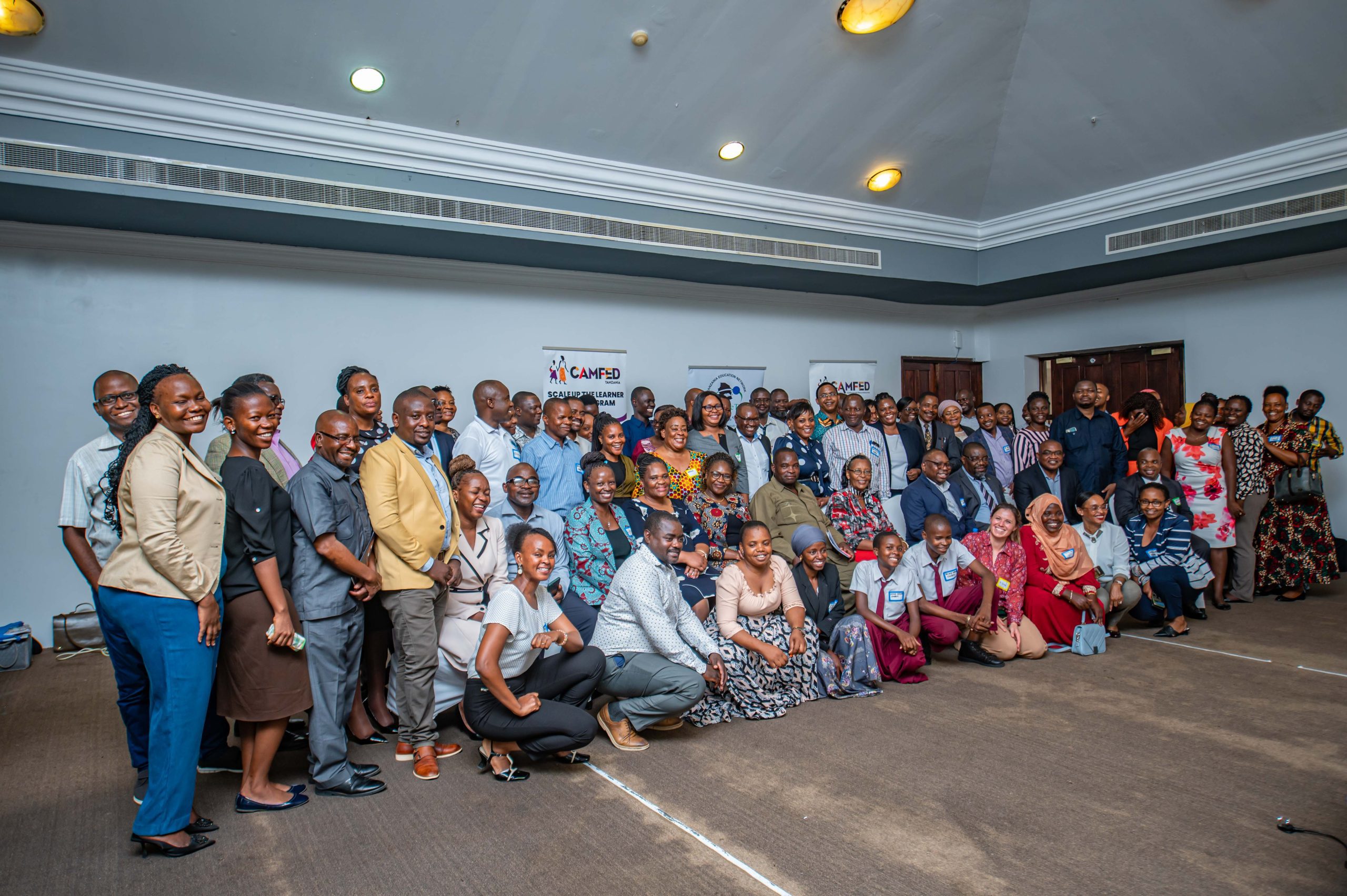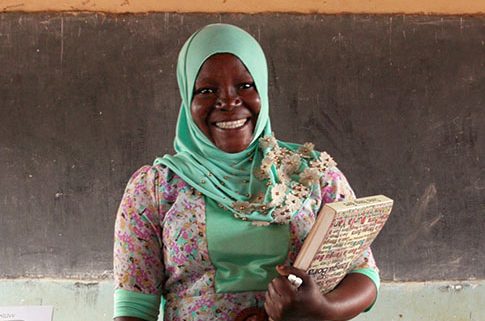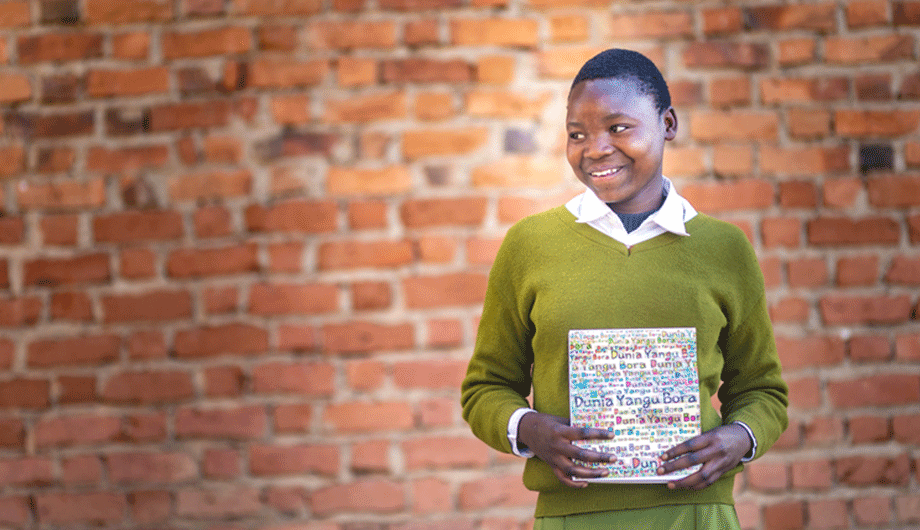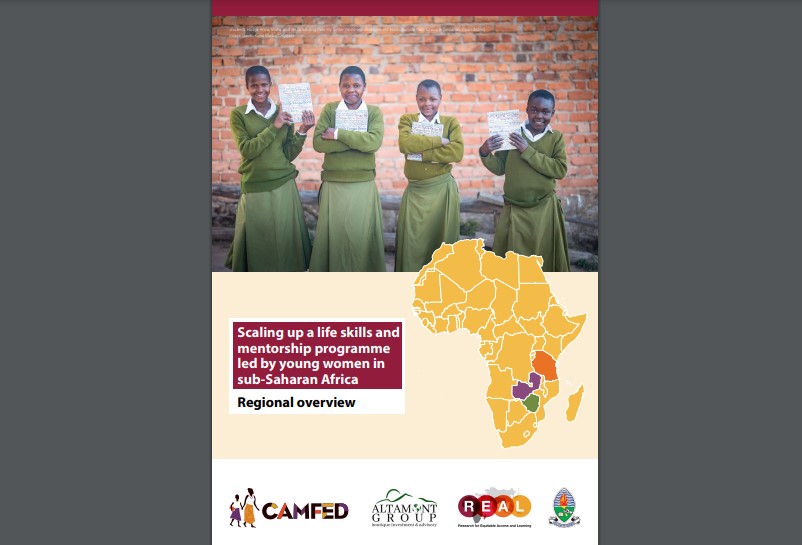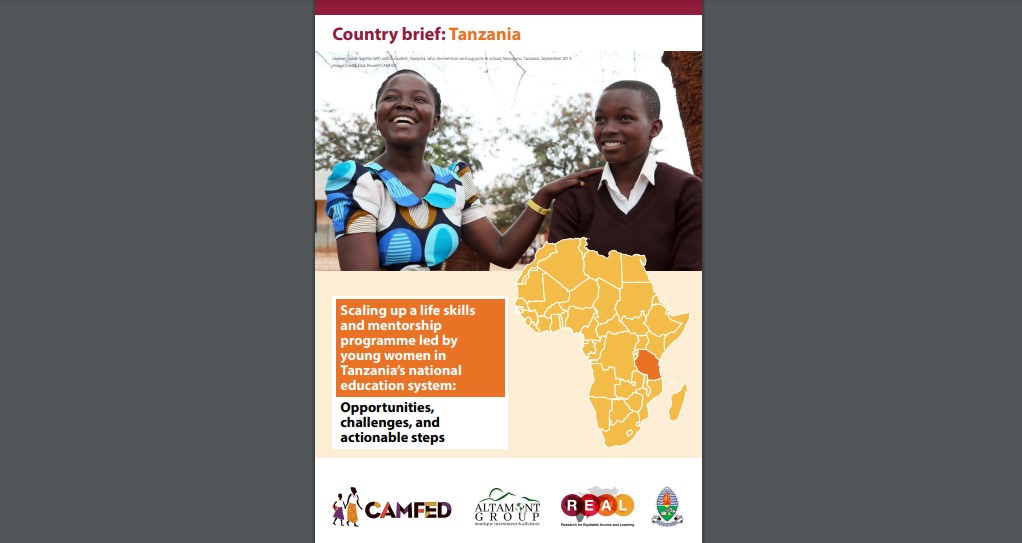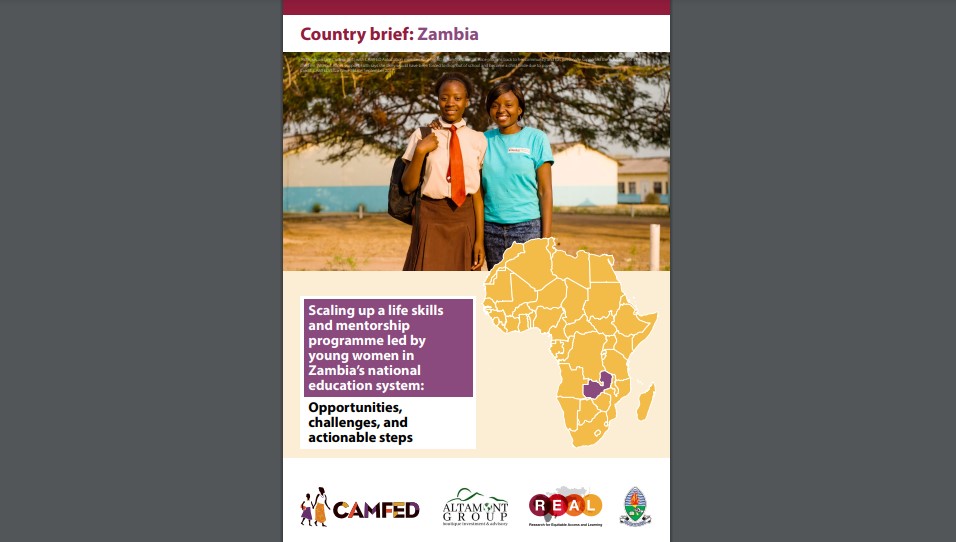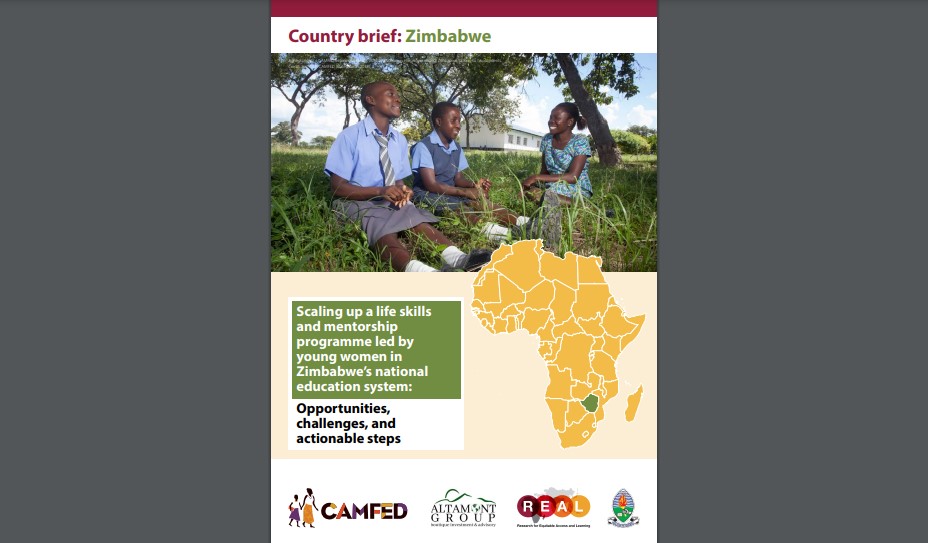Why are Learner Guides important?
Child marriage — though illegal in most of the countries where we work — is widespread, particularly in the rural communities that CAMFED serves. Where intergenerational poverty, exacerbated by climate change, leads to failing crops and increasing desperation, child marriage is seen as a coping strategy. This is where Learner Guides step in, as ambassadors for the life changing power of education, to keep girls in school.
“After delivering the sessions I always encourage the pupils by telling my own story. I also sensitize the learners on the importance of not involving themselves in early marriage. We work to bring child brides back to school. Because they’ve appreciated what Learner Guides are doing, the parents have committed to building a house for the Learner Guides at a school that is too far to travel to.” – Angela, Zambia
Achieving community buy-in
Learner Guides run advocacy sessions in their villages, using role play to illustrate child protection issues including early marriage. Learner Guides are closely connected to local authorities, and have child abuse reporting systems, procedures and mechanisms in place. They join forces with CAMFED district officers, teachers, traditional leaders, social workers and the police to protect child rights, and get to the bottom of abuse cases.
“I work closely with the head teacher, the CAMFED-trained Teacher Mentor, and the School-based Committee, to understand in detail the day-to-day challenges that learners and teachers encounter, and what needs to be done to address them. The approach is different from that of a teacher, whose main focus is academic performance. As Learner Guides, we take an interest in every child’s life as a whole.” – Petronella, Zimbabwe
Going the extra mile
Learner Guides are tuned into the needs and social challenges of children in their communities, and possess the tools and resources to support children academically as well as socially. Beyond the classroom, they provide a bridge between schools, families and local authorities. They take action for “invisible” children and where others may lack time or resources, they go above and beyond to keep girls in school.
“The Learner Guide yields positive results for the students because she stands as a caregiver and as a problem solver. There are children who cannot directly present their challenges to the teacher, but through the Learner Guide the children have been able to explain their problems. I have been by contributing the little I have and meeting the various needs that can help them to attend school.” – Stumai, Tanzania
Leading for a better world
Learner Guides deliver the My Better World program in weekly sessions as part of the school timetable, providing support to 40-50 children. The program is designed to improve students’ confidence, resilience, and autonomy, encouraging children to become more aware of their rights, responsibilities, and values. It is tailored to local needs, including life skills, sexual and reproductive health, literacy and study skills.
“The Learner Guide Program is a means through which the CAMFED Association, CAMA, is addressing needs of students in my community and across Ghana. Through the life skills program we are able to address or tackle issues of the students. Success to me, is making others feel important, feel valued, and helping them achieve greater heights in life.” – Pearl, Ghana
Mitigating crisis situations
Soon after the onset of the COVID-19 crisis, Learner Guides were lauded by governments as an essential service. When schools started to close, our long-established reporting systems, structures and connections meant that CAMFED could support Learner Guides to quickly pivot their outreach to students at home, acutely aware of the additional threats to girls’ wellbeing as families lost their livelihoods and faced increasing food insecurity.
“At the peak of COVID-19 pandemic, we worked with teachers to visit girls at home, dividing them into groups for study circles. We provided them with sanitizers, masks, hand wash, buckets, and COVID-19 guidance. We also met with girls and their parents to advise them to avoid child marriage. Lastly, we did a radio advocacy campaign, having a program on air that was guiding girls to continue studying.” – Winnie, Malawi
